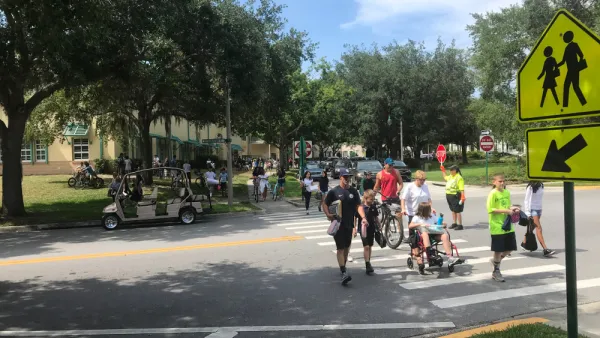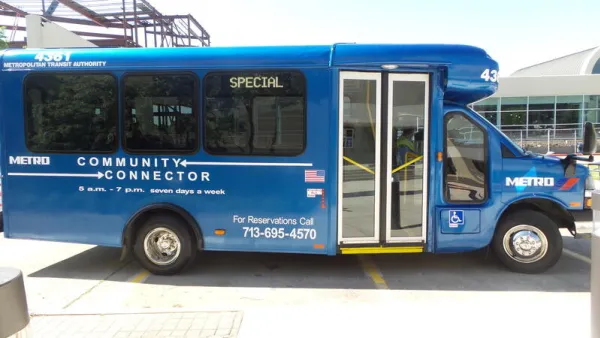Policymakers and venture capital firms love the idea of Mobility-as-a-Service. The public hasn't proven as receptive, despite the willingness to download apps by the millions.

David Zipper writes on the stalled progress of Mobility-as-a-Service companies in capturing the hearts and minds of the world's commuters and movers.
Zipper defines Mobility as a Service (MaaS) as an online platform, usually an app, that allows users to choose from all available transportation modes.
Count Uber among the companies championing the idea of MaaS, and the market has been flooded with apps hoping to deliver on the concept: "MaaS’s most prominent champions have been a group of popular startups offering slick apps like Citymapper, Transit and MaaS Global (the company behind Whim)." Zipper also notes that cities as geographically disparate as Berlin and Louisville have gotten into the MaaS game.
The public has responded with interest from these efforts by the private and public sectors: "Millions of users across Europe, North America, and Asia have downloaded these apps, and venture capital firms endorsing their vision of a multimodal urban future have invested tens of millions of dollars."
But that interest is proving tentative and potentially temporary. "MaaS’s momentum ('MaaSmentum'?) is at risk of stalling," according to Zipper. "To date, MaaS companies have found limited traction among urban residents, even in favorable markets," according to Zipper."
The article includes a lot more detail about the challenges in building consumer preference and commercial traction for MaaS platforms.
FULL STORY: The Problem With ‘Mobility as a Service’

National Parks Layoffs Will Cause Communities to Lose Billions
Thousands of essential park workers were laid off this week, just before the busy spring break season.

Retro-silient?: America’s First “Eco-burb,” The Woodlands Turns 50
A master-planned community north of Houston offers lessons on green infrastructure and resilient design, but falls short of its founder’s lofty affordability and walkability goals.

Delivering for America Plan Will Downgrade Mail Service in at Least 49.5 Percent of Zip Codes
Republican and Democrat lawmakers criticize the plan for its disproportionate negative impact on rural communities.

Test News Post 1
This is a summary

Test News Headline 46
Test for the image on the front page.

Balancing Bombs and Butterflies: How the National Guard Protects a Rare Species
The National Guard at Fort Indiantown Gap uses GIS technology and land management strategies to balance military training with conservation efforts, ensuring the survival of the rare eastern regal fritillary butterfly.
Urban Design for Planners 1: Software Tools
This six-course series explores essential urban design concepts using open source software and equips planners with the tools they need to participate fully in the urban design process.
Planning for Universal Design
Learn the tools for implementing Universal Design in planning regulations.
EMC Planning Group, Inc.
Planetizen
Planetizen
Mpact (formerly Rail~Volution)
Great Falls Development Authority, Inc.
HUDs Office of Policy Development and Research
NYU Wagner Graduate School of Public Service





























